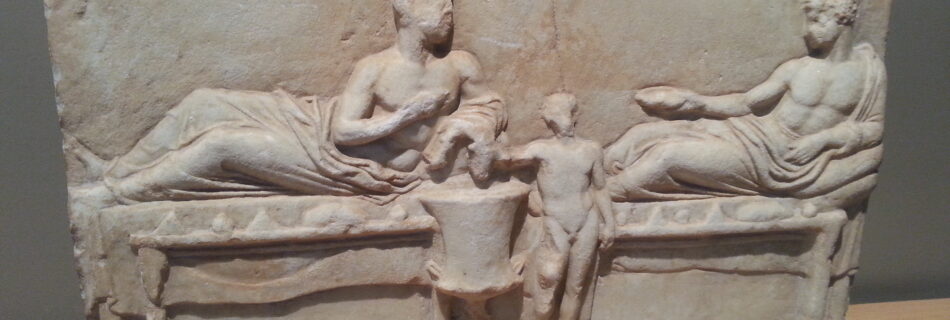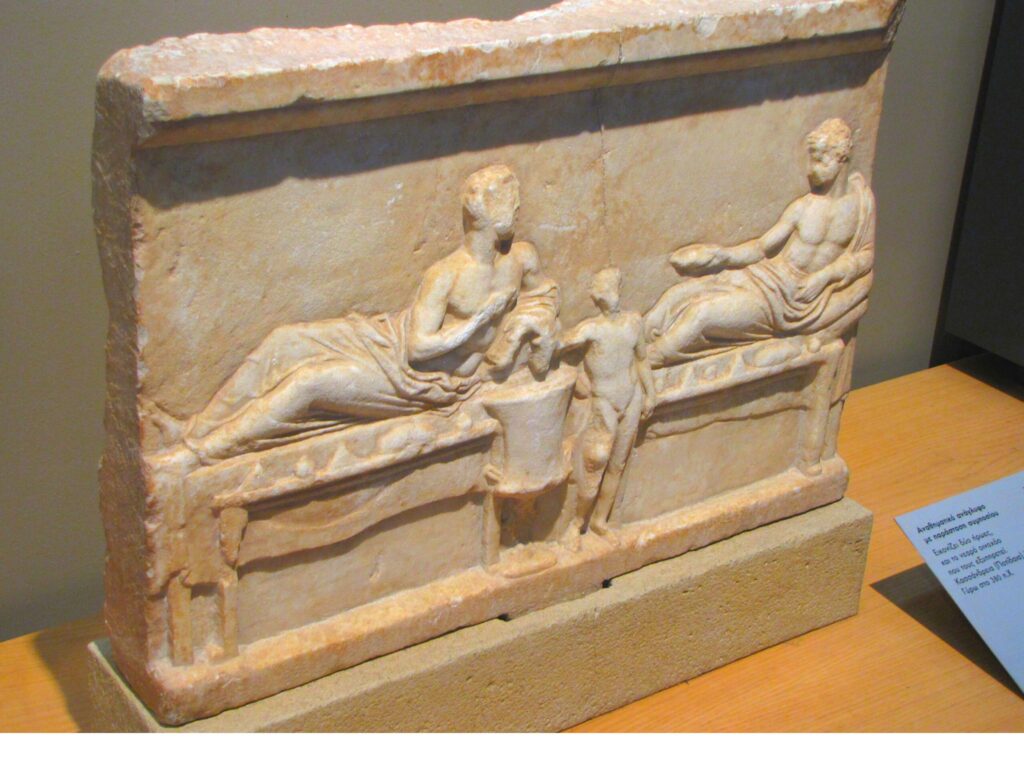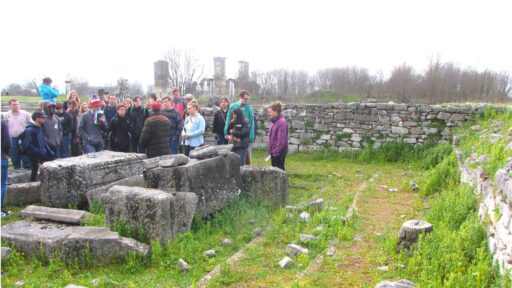The Macedonian language that some people claim that they speak today has nothing to do with Macedonian inscriptions. The language that the Macedonians used in antiquity, was not Slavic, but definitely, without any doubt, was Greek.
Slavic Macedonians cannot name themselves as “The Macedonians.” Rather, they are “Slavic Macedonians.” Macedonians preexisted Slavic Macedonians. Clear? Because there is a debate today. And unfortunately, in that debate, President Bush recognized the little state with the name Macedonia without another identification. He said, “The Bible speaks about the Macedonians.” President Bush disappointed Greece, even the Christians of Greece, with his proclamation because the Macedonians in Scripture are not Slavic Macedonians. The Macedonians in Scripture were Greek Macedonians.
Imagine with me, Greeks who are coming to the United States, keeping their Greek language, and one day saying to the Americans, “Look, all the others are not Americans, we are the only Americans, and you are the occupiers of our country here.” Imagine how strange it would sound in the ears of all the other American people. This is what some so-called Macedonians do today.
The Bible definitely speaks about the Macedonians, (Acts 19:29, 2 Corinthians 9:2,4) but does not support the argument of Mr. Bush. The letters in the Bible, sent to the Macedonians, were all written in Greek, not Slavic. The letter written to the Philippians is in Greek. The two letters written to the Thessalonians are in Greek. When Daniel speaks about the King of Macedonia, Alexander the Great, he calls him the King of Greeks (Daniel 8:20-21).
Next is a column from the Via Ignatia. This column served as a distance marker on the Via Ignatian Road, and it was found in Macedonia, the area of Thessaloniki, Greece.
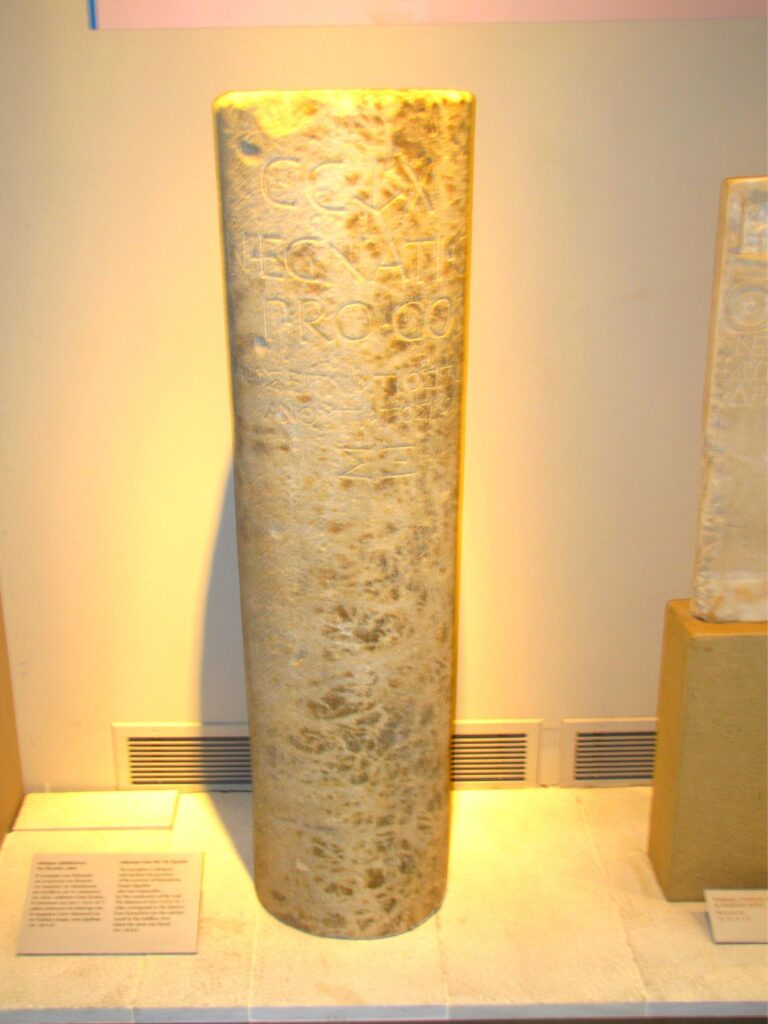
Of the 1000’s of these milestones, today only 35 have survived and here we have one. The Apostle Paul saw these milestones and these milestones helped him to know how far he had yet to go while walking to the next city. Every Roman mile was marked by a milestone, marking the distance from the stone to the closest city.
The Apostle Paul travelled on foot and by ship, and we know that he shipwrecked (Acts 27:9-44, 2 Corinthians 11:25-26.)
Imagine how difficult and expensive it was to use a ship to travel during the time of the Apostle Paul. Travelers paid for an expensive ticket, but travelers had to stuff themselves among the jars and containers of goods on the ship. There were no cruise ships! All ships were cargo ships. So, to travel (if there was room) cargo ships took passengers with them.
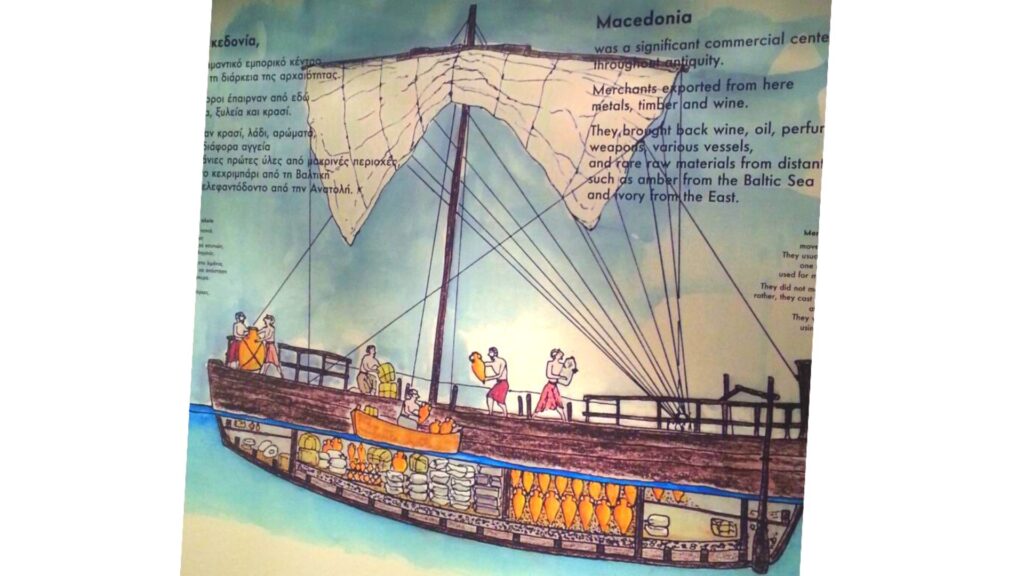
You are familiar with the word symposium. Imagine dining among furnishings, on a couch reclining and having conversations, eating and drinking. This is in the Greek Symposium and it was very common for the young members of the family, especially the male members.
Symposium today has as an equivalent – the party. The Symposium was divided into two parts, the dinner or supper and the drink afterwards. The supper, or the dinner, was short and the drink afterwards lasted longer, sometimes overnight.
In the description of the Last Supper in John’s Gospel, John described the Last Supper as a symposium. We read, “after the supper” and then we have three chapters after the supper. And so you see how the people participated at the symposium. All the time, when we see Jesus invited to such a meal, he reclined. He reclined, not sat down. This is how the people reclined at that time, to eat and to drink.
In Simon’s house, Jesus reclined.
And this is how John came to the chest of Jesus. For example, sometimes today we are two people on the same recliner. Reclining… and so, John came a little bit farther back, and John says he was at the chest of Jesus, very close to face to face.
This is how we can explain what happened with a lady who came to the area where Jesus’ feet were. She broke the alabaster and washed his feet. Jesus was not sitting. He was reclining.
What was she doing in the men’s symposium? This lady was very familiar with the men’s escort. And so, seeing her in the Pharisee’s home where supposedly the theologians of Jerusalem were gathered, they were surprised, and the owner was even more surprised when he saw her touching the feet of Jesus. If he was a prophet, he should know who she was.
Remember that Socrates used this way to teach his disciples. He was invited to symposiums. Symposium means to drink together. While drinking together they discussed very serious things.
Today, metaphorically, we use the term symposium for seminaries and scientific announcements.
